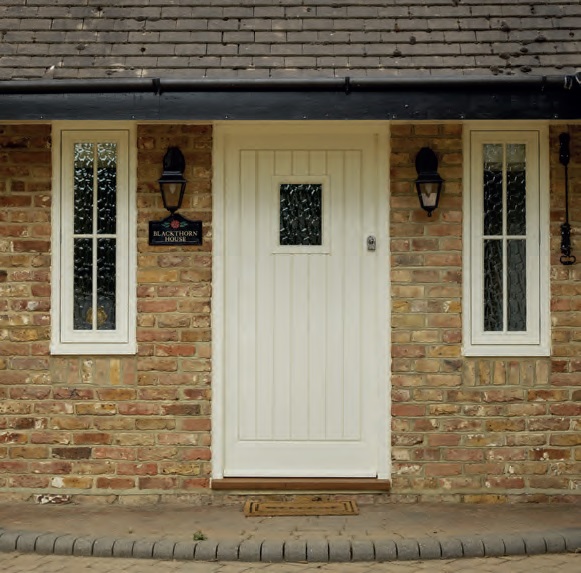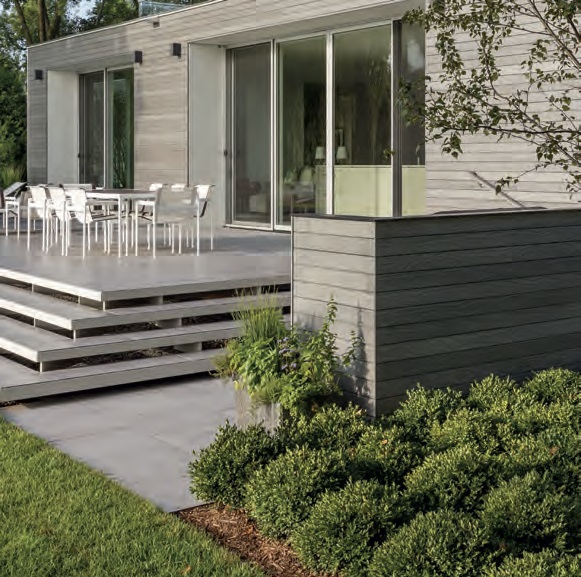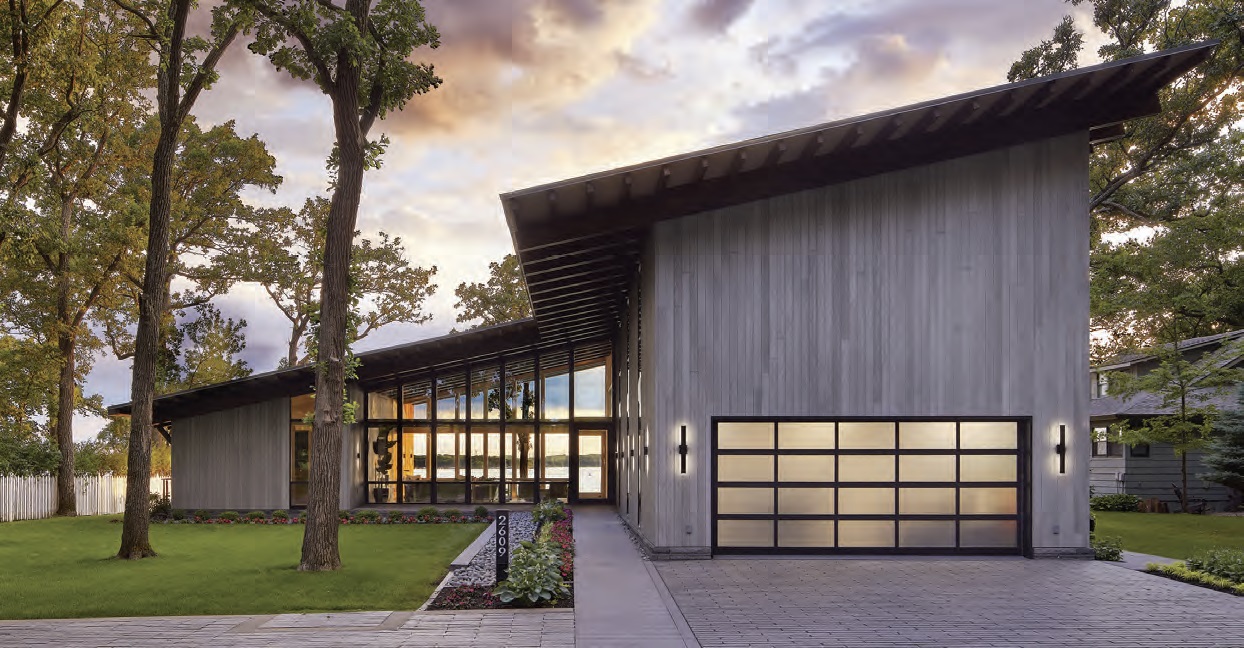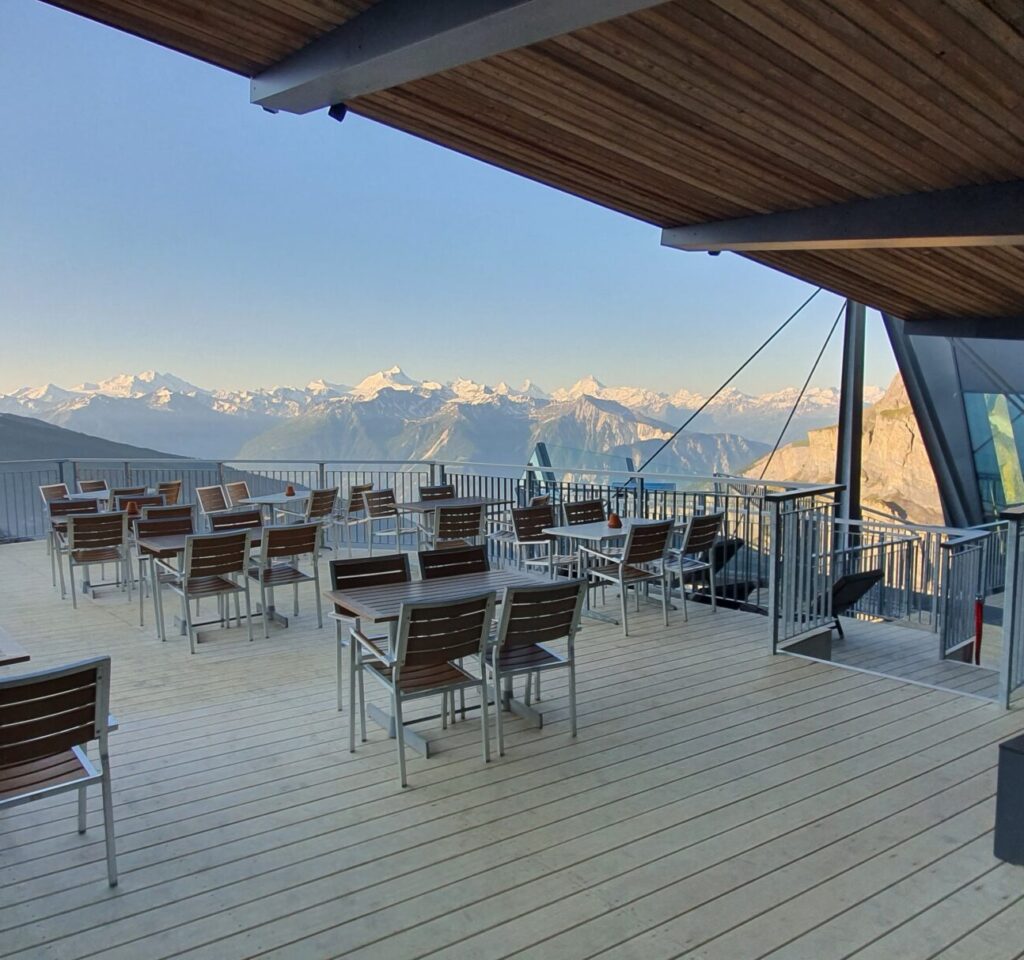Our products offer the world a choice to build more sustainably, without compromising on quality.
They open new opportunities in design, specification, building and manufacturing with their unique characteristics – the best properties of natural wood, enhanced by our acetylation process into a high performance, sustainable building material.
Content on this page contains extracts from the Accsys Annual Report 2023
Market Overview
Accsys’ products are positioned within the substantial global wood products market, a subset of the wider building and construction market.
Macro-economic trends, wider societal ‘megatrends’ and market penetration opportunities provide us with significant growth and demand drivers within our market.
With demand for our products exceeding our volume of supply, currently a key enabler for sales growth is growing our volume of production capacity.
Market size
We operate within the global wood products industry which produces approximately 800 million cubic metres per annum, according to the UN Food & Agriculture Organization. As our products compete with and displace other non-wood building materials from concrete to plastics, the market in which we operate is even larger.
Demand drivers
There are three main types of drivers of demand for our products.
Industry demand drivers
GDP
Over time, construction – the main driver of wood consumption – increases as a result of rising GDP per capita, associated economic development and standards of living rising.
Construction & redevelopment
Our products are used in new constructions as well as refurbishment, redevelopment and remodelling for commercial and residential buildings and projects.
Underlying drivers include social and market expectations of building usages, performance and design, as well as regulatory changes (e.g. building safety, maintenance, sustainability and energy performance).
One-off events can also impact construction and redevelopment growth, as seen with the COVID-19 pandemic causing consumers to spend more time at home and increases in home improvement.
Megatrends
The superior performance and sustainability characteristics of our products tie into a number of broader macroeconomic trends.
Sustainability
The world is coming to a consensus that action is needed to address climate change. 36% of global energy use is accounted for by the building and construction sector.
In addition to decarbonisation, the ‘Race to Zero’, and setting of carbon neutral targets, there is also an increasing focus on the renewability of resources: reducing embodied carbon in materials and buildings and shifting to the circular economy philosophy. Many countries and even global businesses now have mandatory, legislative targets to be carbon neutral by 2050; decarbonisation is not simply an option but an obligation.
Shifting consumer priorities
Consumers in our geographic end markets continue to shift towards products that have a lower environmental impact.
This can be seen everywhere, from the types of shopping bags or drinking straws we use, to the cars we drive.
In the built environment, the trend is the same. We can see evidence all over the world of mass timber buildings – using renewable, carbon-storing wood instead of concrete and steel. Wood is the increasingly popular ‘green building material’ choice, with its natural look and feel and particular favour shown for natural and sustainable products over non-renewable tropical woods.
Increasing customer importance is being placed on whole life cycle considerations – both of costs and environmental impacts.
Lifestyle changes
Socio-economic changes drive a cultural shift in expectations for residences and commercial buildings. There is increasing demand for high performance and low maintenance wood products suitable for outdoor use, with this segment expected to grow faster than for softwood grades generally. Causes of this include lifestyle changes across economies.
Market penetration
Our products are most frequently chosen for their exceptional performance and characteristics across all climates. The exceptional performance, sustainability and quality of Accsys’ products are fundamental to our proposition. With this valued competitive advantage against other woods and non-wood materials, we believe we can grow faster than the market through market penetration and share gains.
Market share and growth Accsys has developed as a company and has developed its markets substantially since proving the commercial viability of acetylated wood. We have grown market share and brand awareness in the industry through market seeding under our current model of distributor supply and manufacturer support.
Competitive advantage and material substitution

Accoya® solid wood has class-leading properties that match or improve upon the unsustainable alternatives, combined with its certified sustainability credentials. Our acetylation process substantially reduces the effects of water on the wood, dramatically reducing susceptibility to swelling, shrinking and decay – all but eliminating the traditional drawbacks of wood, while enhancing the positives.
Architects, specifiers, manufacturers and end-customers no longer need to choose between performance and sustainability, with Accoya® offering clear advantages over non-renewable, unsustainable and heavily polluting alternatives such as tropical hardwoods, synthetics and plastics or mined metals.
Tricoya® panels’ enhanced performance and suitability for use in ‘wet’ environments not only improves their appeal compared to traditional panel products, but also opens completely new use scenarios and design possibilities. Tricoya® displaces alternative more expensive or less easily handled products and opens up major new market opportunities in the construction sector; and sales of Tricoya® panels have increased significantly each year since their introduction to the market.
Both products offer not just ultra-high quality and performance but also market-leading warranties and service life, along with the sustainable benefits and credentials that make them so attractive in this increasingly environmentally-responsible world.
Targeted segment penetration
With products that could be described as ‘disruptive’ to the existing materials on offer, and with demand exceeding production capacity, we have focused on developing the regions and product applications to support rapid but sustainable growth. This means targeting the product categories and use cases for which our products are particularly well-suited, offering the most substantial and easily-understood advantages over other materials.




The majority of our Accoya® sales are to a network of timber distributors which in turn supply a variety of industries, principally for joinery (windows and doors), decking and cladding. Accoya® is primarily selected for use by architects, manufacturers and specifiers for its high performance characteristics. We focus on these applications as Accoya® offers particularly clear and compelling advantages over traditional alternatives, both in material performance as well as sustainability.
Tricoya® panels are currently manufactured using chipped Accoya® wood, in advance of the completion of the dedicated Tricoya® wood chip acetylation plant in Hull, UK. Agreements have been secured with MEDITE and FINSA, who are expected to use the Tricoya® acetylated wood elements in place of traditional wood chip feedstock to create, market and sell Tricoya® panels. Sales of Tricoya® panels have increased significantly each year since MEDITE introduced them to the market in 2012, being used both in place of ‘traditional’ panels and in applications where wood panels would not have previously been feasible.
As we expand our manufacturing capacity, we will be targeting not just development of and expansion into new regional markets, but also into more application types as we continue to develop our product range.
Route to market

Our focus on marketing and selling to our distributors and their customers has been a very successful route to establish our products in the market as we challenge traditional preconceptions about material choice. We have built and developed strong relationships with our distributor networks in key territories.
Through training, support and engagement with them and their manufacturing customers, we develop brand and product advocates throughout the value chain.
We are seeking to significantly increase the awareness of the benefits of Accoya® with end users and consumers. Currently our extended sales network with our partners and customers is a major driver of end-user demand – expert recommendation being highly valued in our markets – however we are already seeing evidence of Accoya® in particular gaining a very positive reputation with enthusiastic property and home owners as well. The integration of our Approved Manufacturer Programme with location- and application-based ‘Where to Buy’ listings on the new website has resulted in significantly increased throughput of demand to vendors of Accoya® products: benefitting our brand, our customers, and end-consumers.
By developing our multi-channel marketing strategy, coupled with continued close support with our distributors and manufacturers, we will ensure that we continue to build on our strong market position.





